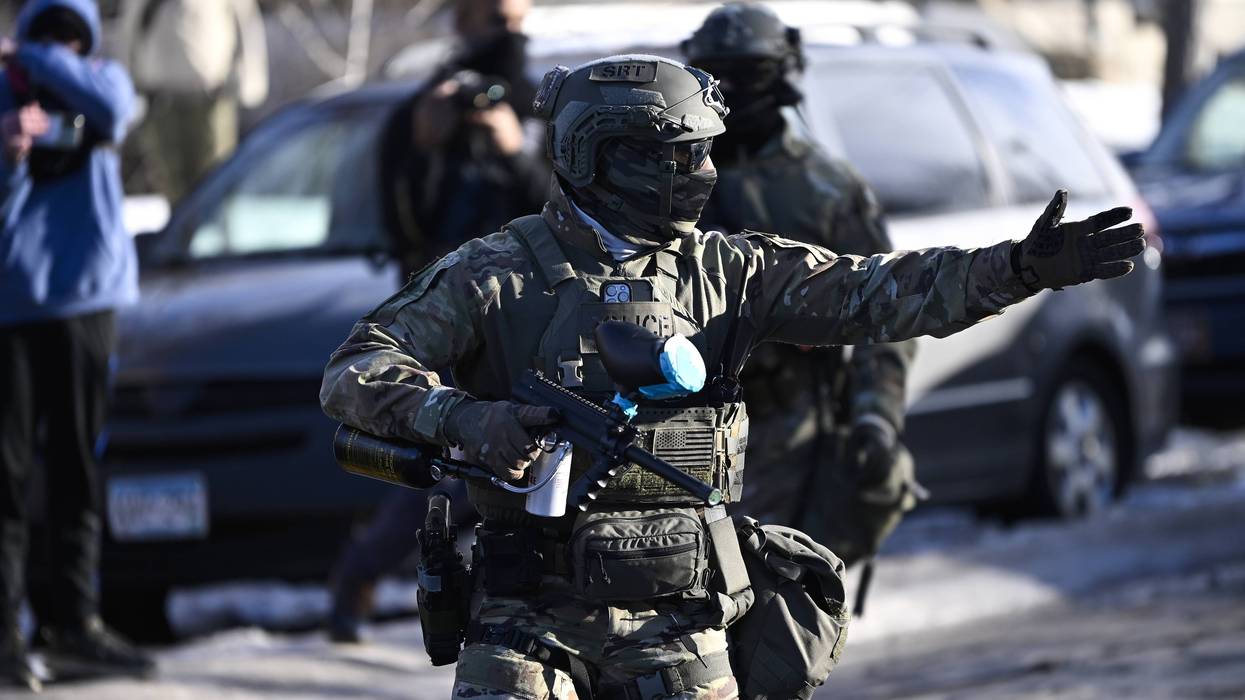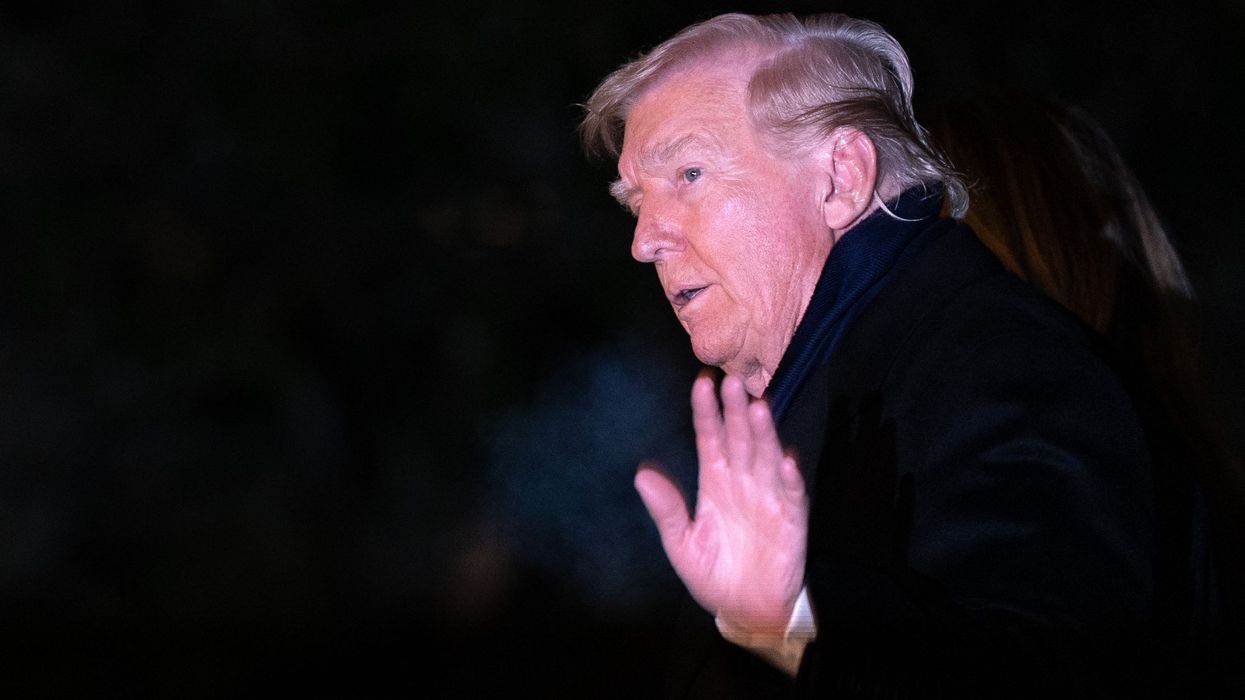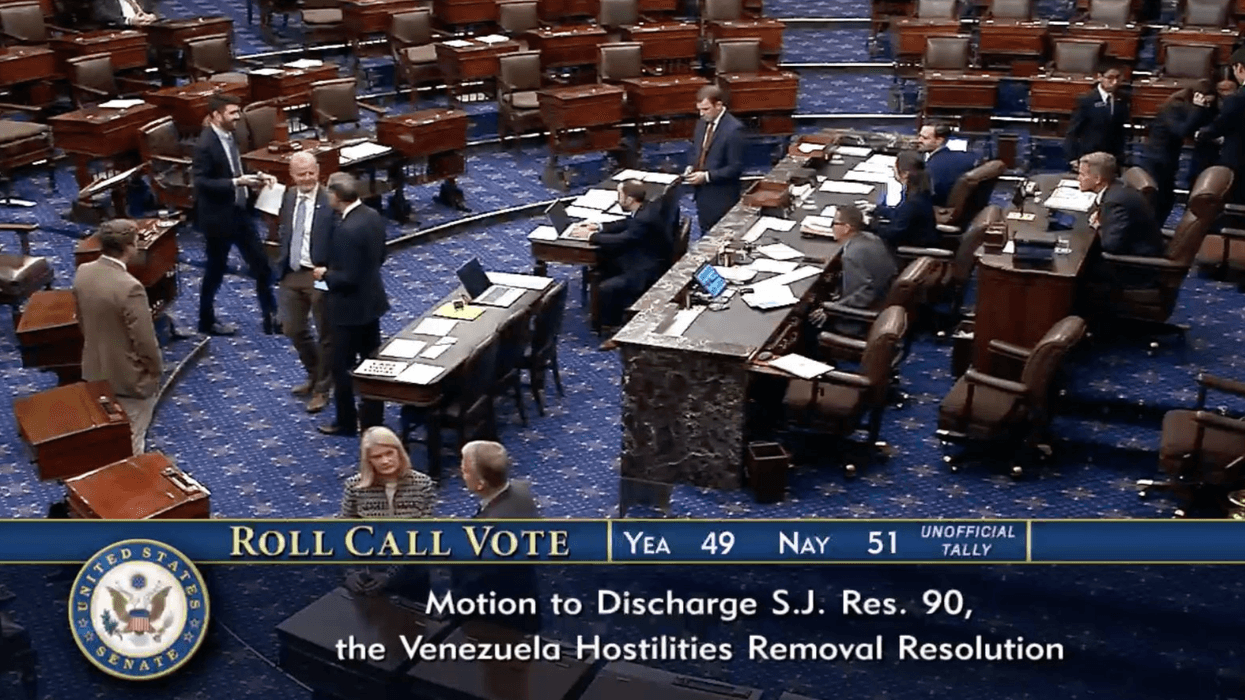'Heavily Armed Secret Police Force': ICE, CBP Amass $144 Million Weapons Stockpile
"In just one year, ICE’s spending commitments on weapons, ammunition, and accessories surged fourfold."
A report produced by the office of Sen. Adam Schiff reveals that federal immigration enforcement agencies amassed a gigantic weapons stockpile during the first year of President Donald Trump's second term.
In total, the report released by Schiff (D-Calif.) finds that US Immigration and Customs Enforcement (ICE) and Customs and Border Protection (CBP) committed to spending over $144 million on weapons and ammunition over the last year, a massive increase over these agencies' spending on weapons in years past.
"In just one year, ICE’s spending commitments on weapons, ammunition, and accessories surged fourfold—an increase of over 360 percent—when compared to ICE’s contracts in 2024," states the report. "In 2025, CBP’s contracts for weapons, ammunition, and accessories doubled when compared to CBP’s 2024 contract totals."
The report documents how both agencies have combined to spend tens of millions of dollars purchasing lethal weapons, including "AR-style rifles, pistols, and large quantities of accessories, such as optical sights for firearms and suppressors"; so-called "less-lethal" weapons including "TASERs, pepper sprays, tear gas canisters, and canister launchers"; and assorted kinds of ammunition.
The report adds that "records show that DHS’s procurement of weapons at immense scale is just beginning, as these contract awards contemplate even greater spending moving forward," which it says should serve "as a stark warning to the American public."
Schiff's report concludes with a warning about the US Department of Homeland Security's (DHS) "growing plans to build a heavily-armed domestic police force," adding that federal immigration agents' killings of Minneapolis residents Renee Good and Alex Pretti could only be the first of many tragedies to come.
In an analysis of the Schiff report published Wednesday, the New Republic's Greg Sargent argued that the Trump administration is trying to launch a domestic "war on terrorism" by bringing the kind of violence the US has deployed overseas back to the homeland.
"In a sense, we’re seeing yet more cancerous growth of the post-September 11 national security bureaucracy, but with a more intensified inward focus," wrote Sargent, who described ICE and CBP under Trump as a "heavily armed secret police force" in a Wednesday social media post.
Georgetown University law professor Rosa Brooks told Sargent that the dangers posed by ICE and CBP could outlast Trump's presidency.
"Trump is building up a well-funded, poorly trained paramilitary force that could easily take on a life of its own,” Brooks explained. “Once you have a massive moneymaking machine ginned up, it’s hard to reverse course and turn off the spigot.”


